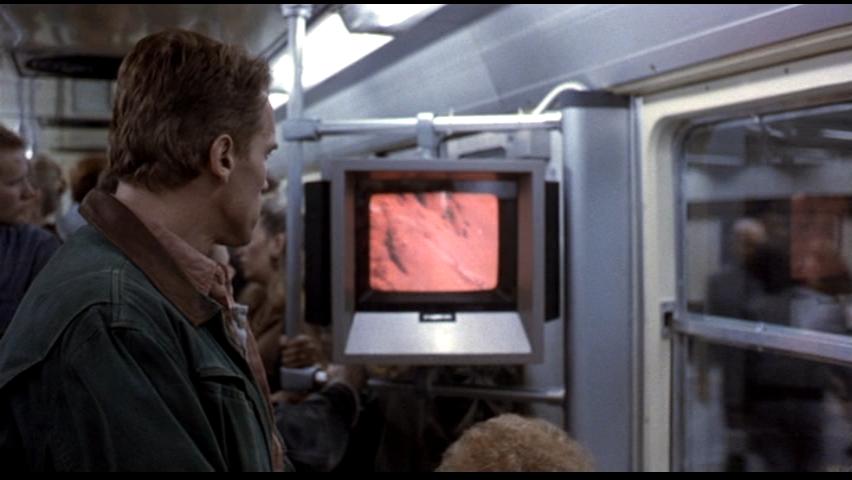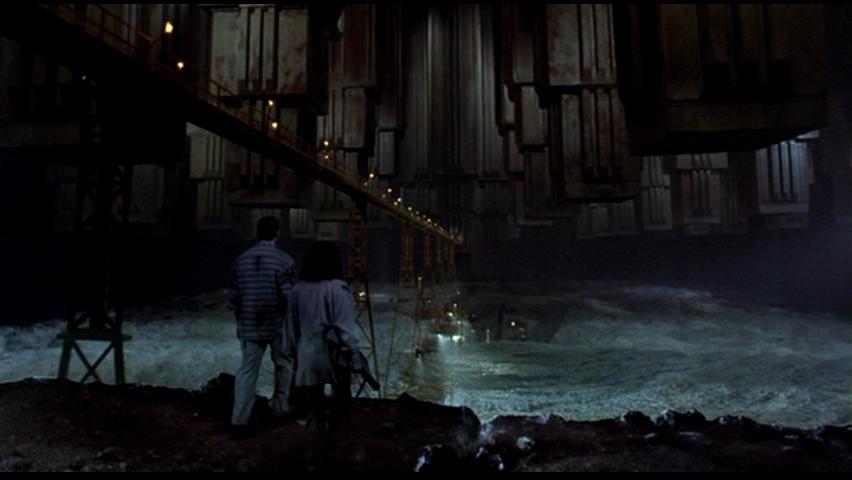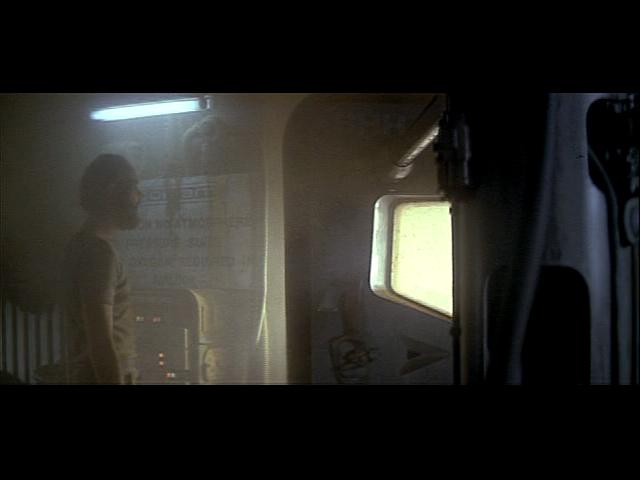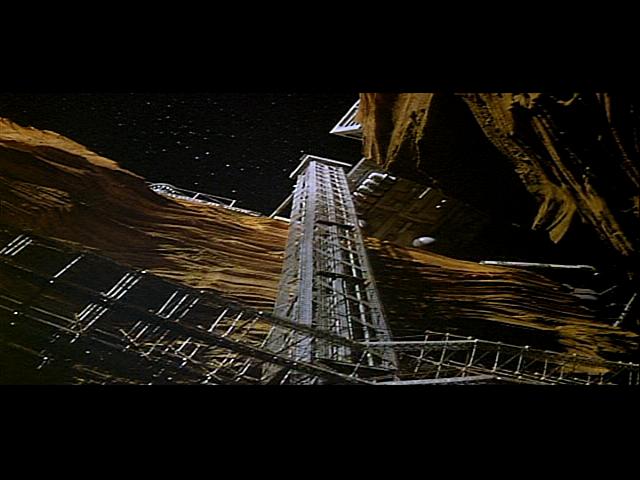
If Star Wars and Silent Running use of music both dominantly or iconicly as well as atmospherically, then Total Recall demonstrates a shift to music as completely subordinate. For this film, an original score was generated by composer Jerry Goldsmith. Goldsmith introduces light electronic instruments with the raw, orchestral sound to support the fast-paced action and sci-fi content of the film. A typical example would be the thumping, tense music used to support action sequences such as the early chase scenes on Earth, when Quaid is running from Richter and his mob.
Also notable is the atmospheric music when Hauser and Melina enter and move through the great, cavernous reactor chamber. To identify this mysterious, alien space the score introduces synthesizer and wavy effects that may be unusual or unfamiliar to the audience.
Despite the strong presence of the music in Total Recall, the score is not actually that long. Many of the subtler or shorter scenes reuse source cues, like the "Rekall, Rekall, Rekall" jingle in the train, and numerous other ten or twenty second commercial jingles heard in elevators or other locales. In the end, the nature of Total Recall's music is to be a subordinate element that highlights the mood or atmosphere of the action.
Of course, it fits to learn that Goldsmith was also responsible for the music of Outland . Outland is a 'lone-ranger' style space film set on a remote mining colony on Io, Jupiter's Moon, also uses a mix of orchestral and synthesized musics. Again, music supports certain narrative actions, and again we can identify certain space themes that relate to this. For example, when one worker who is high on hallucinogens goes down the elevator shaft into the mining pit, consequently killing himself, the music takes on a forbidding and even scary tone, primarily through orchestral sounds. Another example is at the end of the film, during the Boyle's final confrontation with the assassins, a mix of quiet string instruments and synthesizer promote the suspensful scene.
Other films in our syllabus that follow this trend of subordinate music, but which will be left out in the interest of clarity, are Solaris, with its minimal music overall and a lean towards atmospheric noise or sound with slow panning shots, and H.G. Wells' First Men In the Moon, which uses light or heavy orchestral pieces depending on the mood of the scene and focuses on the actions of the main characters.




